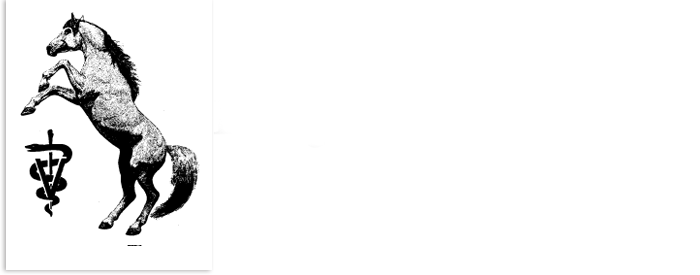Hypothyroidism
Is your horse always a little lethargic. Does it have a cresty neck. Has it foundered?
These are among the signs of a hormone deficiency known as hypothyroidism. The thyroid gland resides along side the trachea. It produces two hormones thyroxin and calictonin. Thyroxin helps to regulate overall body metabolism. Calcitonin regulates the levels of Calcium in the body.
I will try to describe today the conditions of a lack of the thyroxin hormone, hypothyroidism. The symptoms which are usually brought to the attention of a veterinarian included lethargy, a large cresty neck with difficulty keeping weight off the horse. Repeated incidence of founder, poor reproductive efficiency or poor libido can also be symptoms of this condition. Scaly poor hair coat or hair coat which sheds much later in the spring than other horses occurs in other horses. None of the symptoms are unique to hypothyroidism. So while it should be considered in horse with the above symptoms. One will need to test for other diseases in order to reach the correct diagnosis.
To check to see if a horses is hypothyroid, a thyroid stimulation test is performed. The horses is given a hormone called TSH, thyroid stimulating hormone. Blood is draw to determine the base line levels of thyroxin in the blood. Several hours later a second blood sample is taken to determine the new blood levels of thyroxin.
The release of thyroxin from the thyroid gland is controlled by the gland in the brain called the pituitary gland. In response to need the pituitary gland releases TSH, thyroid stimulating hormone, into the blood stream. This hormone reaches the normal thyroid gland and cause the release of thyroxin. You expect the administration of TSH to a patient to result in a large increase in thyroxin levels in the blood In the horse with hypothyroidism the TSH does not work. The blood levels remain depressed and virtually unchanged.
Fortunately, therapy is very straight forward. There are a few relatively inexpensive forms of thyroid replacement hormones which can be given to your horse in the form of a feed additive powder. Unfortunately, the exact amount to give varies from horse to horse. If your horse is diagnosed with hypothyroidism you should expect to try several doses and follow up blood tests to determine the right dose for your horse.

